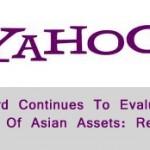Mountain View, California — Back in 2008, it looked like the Google Books legal saga might finally be over. But, Google yesterday in a novel twist, filed a motion in a federal court to dismiss copyright claims against its Google Books project by the Authors Guild as an associational plaintiff from the long-running book-scanning case, and also moved to sever the American Society of Media Photographers from its related suit against Google, saying the groups could not sue over copyrights they did not own.
The motion was the newest development in an exceedingly legal battle that has been raging since 2005, when The Authors Guild and the American Association of Publishers sued to restrict Google from scanning countless books in libraries and creating digitized content from them accessible in libraries and online.
However, if permitted, then just the individual plaintiffs within the two lawsuits would go forward with litigation against Google. The Authors Guild and visual artists currently have till January 23 to file their responses, to that Google will then respond shortly thereafter, seemingly in early February. Meanwhile, Judge Chin can have overlapping motions, as Google is scheduled to file its response to the Authors Guild recent motion for class certification motion by January 26.
They charge that scanning the books while not invariably seeking permission would violate copyrights. The American Society of Media Photographers (ASMP) filed an analogous lawsuit last year, that is being thought of alongside the authors’ case.

So now, after three years of closely collaborating to try to get their settlement approved, the parties are now back in courts and at each others’ throats. Google’s motion seeks to remove The Authors Guild and the ASMP from the lawsuits. They do not have legal standing to sue over the copyrights because they are not the original copyright holders but merely represent them, Google argued in its brief supporting the motion.
“The associations are not original parties to this copyright infringement case because they themselves do not claim to own any copyright at issue,” Google wrote in the brief to Judge Denny Chin of the U.S. District Court for the Southern District of Manhattan.
In its supporting dossier, Google argues that the associations lack standing to bring suit. “Plaintiffs in both cases fail to plead facts showing that the associations have no standing to bring these copyright claims,” the brief posits. “For that reason, the claims of the associations must be dismissed.”
On his blog, the Laboratorium, New York Law School’s James Grimmelman explained the legal justification of Google’s motion. “Ordinarily, only the person who has allegedly been injured by the defendant’s actions has standing to sue,” he stated. “In a copyright case, standing comes from ownership. Only the ‘legal or beneficial owner’ of the exclusive right the defendant has allegedly infringed has standing to sue. Since the Authors Guild does not own the copyrights in its members’ books, it can not sue in its own behalf.”
Google launched the library scanning project in 2004. One copyright settlement was already reached in 2008, but Judge Chin rejected that agreement in March. If Judge Chin certifies the classes, then the cases will move forward, with Google making a fair use argument later in 2012. A decision on the merits would then be expected in late 2012 or 2013.


